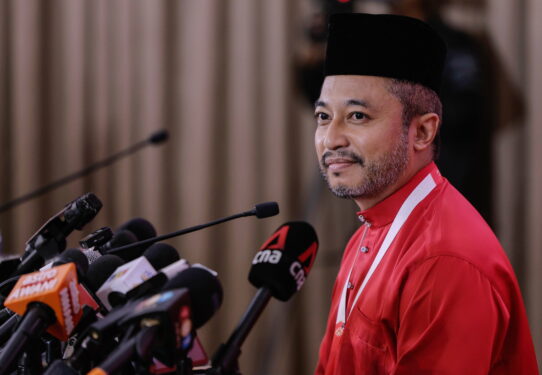By Ranjit Singh
ECONOMISTS have lauded the move by the Ministry of Finance (MoF) to organise a multi-ministry discussion to plan for an economic stimulus package amid the coronavirus outbreak.
“MoF is very concerned with the outbreak of the 2019 novel coronavirus which has affected the economy in general, and especially the tourism industry,” Minister of Finance Lim Guan Eng said in a statement yesterday.
Dr Yeah Kim Leng, a professor at Sunway University and member of Bank Negara Malaysia’s (BNM) Monetary Policy Committee (MPC), tells FocusM although the outbreak of the Wuhan coronavirus was in its nascent stages, it was a timely move by the government.
“Although it is still too early to implement a stimulus package to counter the coronavirus epidemic as it is still developing, it is a good move for the government to seek inputs from industry players on the likely impact and areas where government assistance is most needed in the event of a full-blown crisis.
“The tourism, retail, airline and transportation industries are likely to be the focus of attention as far as fiscal and financial support is concerned. A broad-based stimulus package may be needed to shore up consumer spending to offset the external headwinds,” said Yeah.
Lim had said the MoF will meet with the ministries of Economic Affairs, Tourism, Arts & Culture and International Trade and Industry and related service companies to obtain inputs in planning the economic stimulus package.
It was previously reported that due to the virus outbreak, MoF intended to prepone an economic stimulus package initially planned to address the potential impact from the US-China trade war.
Bank Islam Bhd chief economist Afzanizam Abdul Rashid tells FocusM that the need for an economic stimulus package has become more critical as the external front has become more volatile.
“The goal here is to stimulate the domestic economy as the external sector has become increasingly volatile and is affecting the trade sector and market sentiment,” he said.
He added that the government has no control over the external sector and the aim of the package would be to ensure that domestic spending continues to inch upwards in a manner that will offset the weakness on the external front.
“Consumer spending accounts for more than 50% of the GDP. So obviously, the immediate priority is consumer spending will not be interrupted by the ongoing global events,” said Afzanizam.
He added that measures to stimulate the economy may include a reduction in EPF members’ contribution rate. This was done before in 2001, 2003, 2009 and 2016 and it is optional as members who opted to maintain their contribution rate of 11% would need to fill up certain forms.
“The measures will only be transitory and the contribution rate will be restored to the original 11% once the economy recovers. Usually, the government will indicate a fixed timeline to bring back the contribution rate to its original state. The reduction in the contribution rate would help improve disposable income among the working population.
“Apart from that, the government can accelerate the implementation of infrastructure projects. This will help boost construction activities which will benefit other sectors such as manufacturing and services.
“Perhaps speeding up the implementation of Malaysian@Work initiatives can also be deemed as a form of economic stimulus as it will encourage the recruitment of more workers. Maybe the size can be increased in the current context,” added Afzanizam.
The US subprime crisis in 2009 saw the government introducing two fiscal stimulus packages. The first one was in November 2008 with a total allocation of RM7 bil and the second was in March 2009 amounting to RM60 bil.
“Back then, the crisis was quite severe and therefore it required a sizeable amount of fiscal injection. So the fiscal stimulus package has to be tailor-made to the current circumstances. The impact from the fiscal stimulus is immediate as compared to monetary policy. So depending on the severity, fiscal stimulus can be launched in order to safeguard economic growth,” said Afzanizam. – Feb 6, 2020









